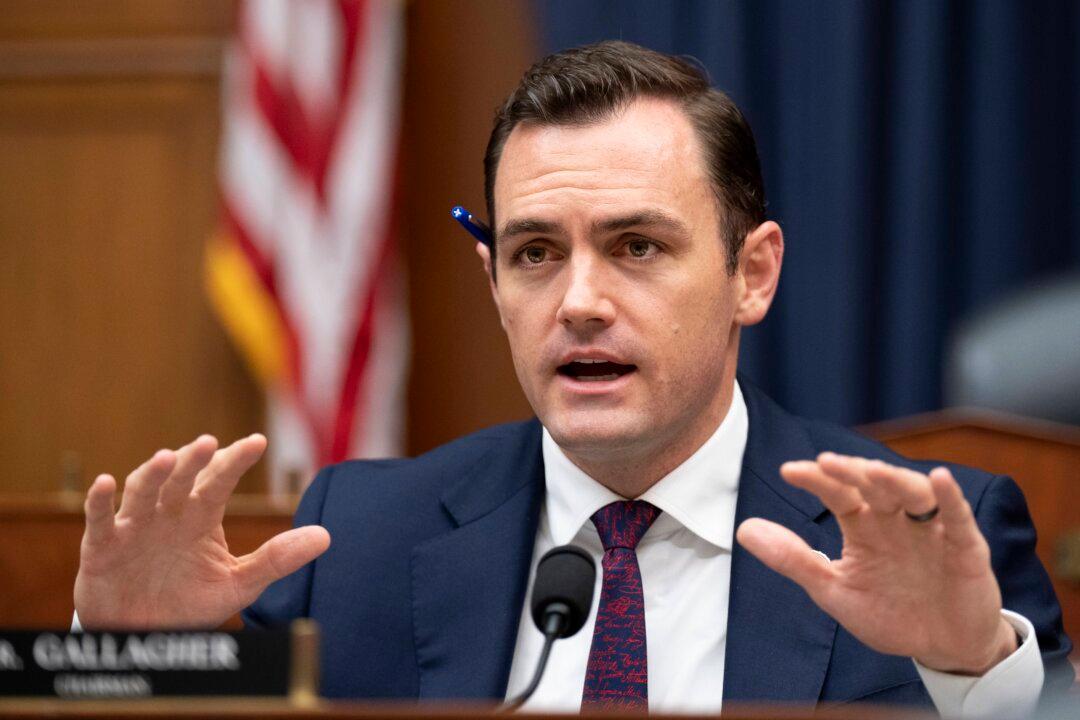U.S. Congressman Mike Gallagher (R-Wis.), who chairs the House Select Committee on the Chinese Communist Party (CCP), has called for Australia and the UK to adopt a “war footing” to avoid conflict with China.
During a talk at the Australian American Leadership Dialogue in Canberra on Aug. 10, Mr. Gallagher said the trilateral AUKUS defence pact would integrate Australia into the U.S. missile supply chain and that long-base precision missiles could be forward deployed in the Indo-Pacific, reported The Australian.





